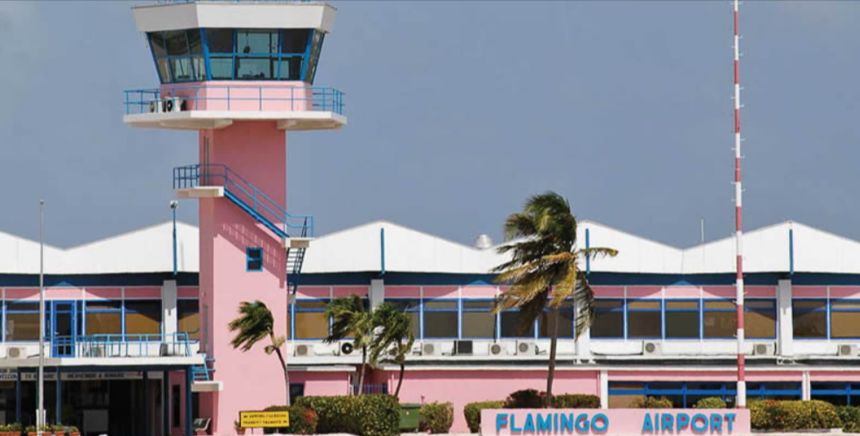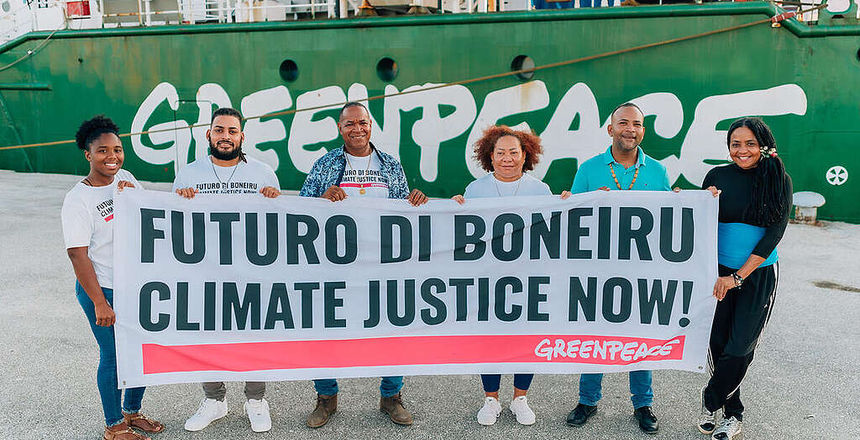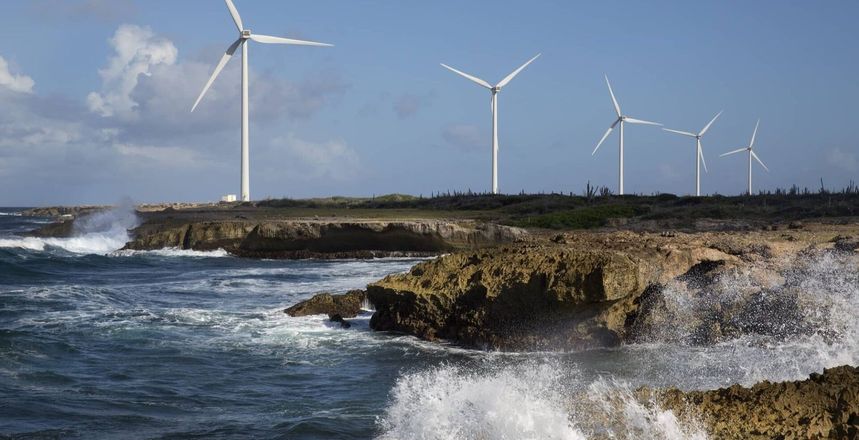News Projects Sustainable Energy Smart Mobility Social Improvement
3 min.
This week, the original Future Islands webinar series about aviation in the Caribbean wasn’t the only meaningful initiative regarding the future of air transport in the region. On Wednesday, December 14th, while our team was preparing for the second episode of its webinar series, a milestone agreement with regard to the expansion and improvement of Bonaire International Airport, popularly known as Flamingo Airport, was reached. Hennyson Thielman, Commissioner at the Public Entity Bonaire (Openbaar Lichaam Bonaire of OLB), signed the agreement in the presence of Dutch Minister of Infrastructure and Water Management (Infrastructuur en Waterstaat) Mark Harbers, CEO van Flamingo Airport Maarten van der Scheer, and Kingdom Representative (Rijksvertegenwoordiger) for the Public Entities of Bonaire, St. Eustatius and Saba Jan Helmond.
(Missed our “Aviation in the Caribbean” webinar series? Don’t worry, you can find the 3 full episodes on our own Youtube channel. Don’t forget to subscribe!)
More than just expansion
Even though expansion of the existing facilities at Bonaire International represents an important part of the agreement, it contains other crucial focus areas as well. In that sense, improving overall security and making the airport’s operations more sustainable are amongst the most important. Seeing as the central Dutch government is responsible for security throughout the Kingdom, part of the coming investment will be used to bring security at Flamingo Airport up to the standards as required by the International Civil Aviation Organization (ICAO), the United Nations organization focused on the coordination of the principles and techniques of international air navigation.
The expansion part of the agreement will be financed through a combination of external funding and the airport company’s own funds. The goal is to expand the existing terminal and to modernize it, so that it lives up to modern-day air travelers’ expectations. At the same time, such an expansion will also allow the airport to process more travelers, which should have a positive impact on the island economy as this would allow for more business activity and tourism. The idea is to invest around €50 million in the airport and the island of Bonaire has already freed up €6,6 million for the project, on top of the €15 million already pledged by the central Dutch government.
“By expanding Flamingo Airport, the Public Entity Bonaire ensures a safe, sustainable and high-quality processing of passengers at the airport”, commented Commissioner Hennyson Thielman after the agreement was signed, “Good infrastructure is essential for a future-proof and sustainable economic development [of Bonaire], and represents a fantastic calling card for our island”.
Bonaire International Airport CEO Maarten van der Scheer echoes the Commissioner’s words in his own reaction. “At Flamingo Airport, we want to facilitate the increasing demand in a safe, sustainable and correct manner, a manner that fits what Bonaire stands for”, he says, “With the help of both ministries and the island we can make that possible. We are very happy with the excellent collaboration and support from our partners. Once the plans have been completed, the airport will be ready for the future”.
Eye on sustainability
The parties involved in the modernization plans for Flamingo Airport are also making the most of the opportunity to work on the facilities’ sustainability. The in-house production and usage of sustainable energy plays a central role in those ambitions. There will also be attention paid to the arrival of electric aircraft on the medium and long term. The terminal will be re-designed accordingly, which will make Flamingo Airport one of the most forward-thinking airports in the world in this sense.
“This investment allows the airport (Flamingo Airport) to better anticipate international security requirements, an essential part of safe aviation”, explains Minister Mark Harbers, “At the same time, it’s important that the airport remains at the service of Bonaire’s local population. Finally, I’m happy that this plan helps Bonaire to prepare for sustainable aviation in the future. Thanks to the short distances and the relatively small number of passengers on flights between the islands, the Caribbean Netherlands are by design perfect for this type of sustainable flying”.
The basis for this article was originally published on www.luchtvaartnieuws.nl and others in December 2022.





